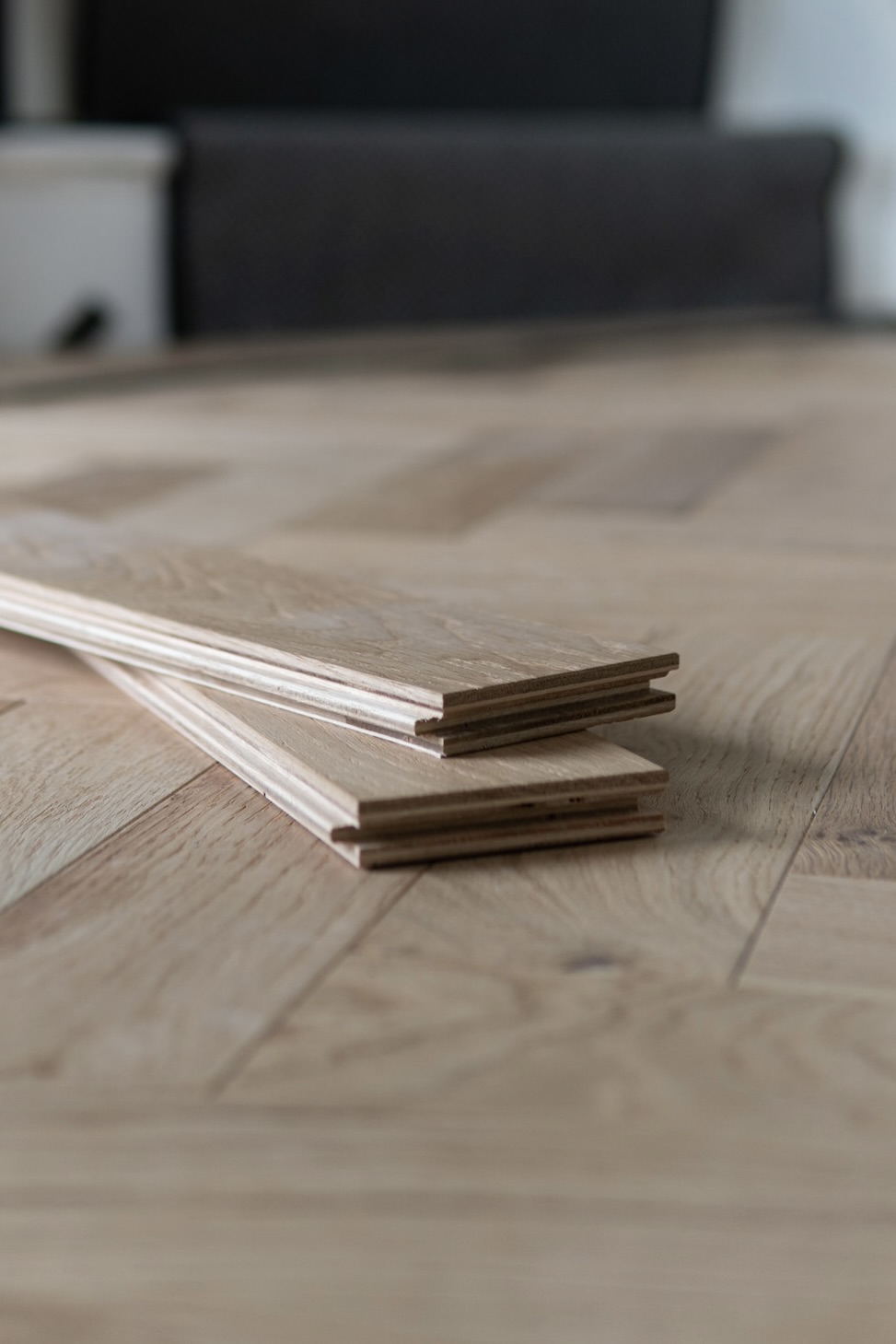Should I get a Thick or Thin Wood Flooring?

The choice between thick and thin wood flooring primarily depends on your specific needs, preferences, and the conditions in your home. Here are the key differences between thick and thin wood flooring:
Thick Wood Flooring:
- Durability: Thick wood flooring, typically 18mm or more in thickness, is more durable and long-lasting. It can withstand heavy foot traffic, resist wear and tear, and can be sanded and refinished multiple times over its lifespan.
- Stability: Thicker boards are less prone to warping, cupping, or bowing due to changes in humidity and temperature. They are more stable in varying environmental conditions.
- Sound Insulation: Thick wood flooring tends to provide better sound insulation compared to thinner options. It can help reduce noise transmission between floors.
- Appearance: Thick wood flooring often has a more substantial, classic look that can add a sense of luxury and permanence to a space.
Thin Wood Flooring:
- Cost: Thin wood flooring, typically 8mm to 12mm in thickness, is generally less expensive than thicker options. It can be a cost-effective choice for budget-conscious consumers.
- Installation: Thin wood flooring is often easier to install because it is lighter and more flexible. It may be suitable for DIY installations.
- Transitions: Thin flooring can be a good choice when transitioning from one type of flooring to another, like tile or carpet, as it can help maintain even floor levels.
- Radiant Heating: Thin wood flooring may be a better choice for homes with radiant heating systems, as it allows heat to transfer more efficiently.
Which One Is Best for You?
The choice between thick and thin wood flooring depends on several factors:
- Budget: If you have budget constraints, thin wood flooring may be more suitable.
- Intended Use: Consider the level of foot traffic in the area where you plan to install the flooring. For high-traffic areas, thicker flooring is a better choice for durability.
- Climate: If you live in an area with fluctuating humidity levels, thicker flooring is less likely to experience issues like warping or cupping.
- Aesthetic Preferences: Your personal taste and the style you want to achieve in your space can influence your choice. Thicker flooring can offer a more substantial and luxurious appearance.
- Installation: Think about whether you’re hiring a professional installer or doing it yourself. Thinner flooring may be easier for DIY installations.
Ultimately, there is no one-size-fits-all answer to whether thick or thin wood flooring is best. Carefully assess your specific needs and preferences, and consider factors such as budget, durability, climate, and aesthetics to make an informed decision. Consulting with a flooring professional can also be helpful in choosing the right type of wood flooring for your home.




